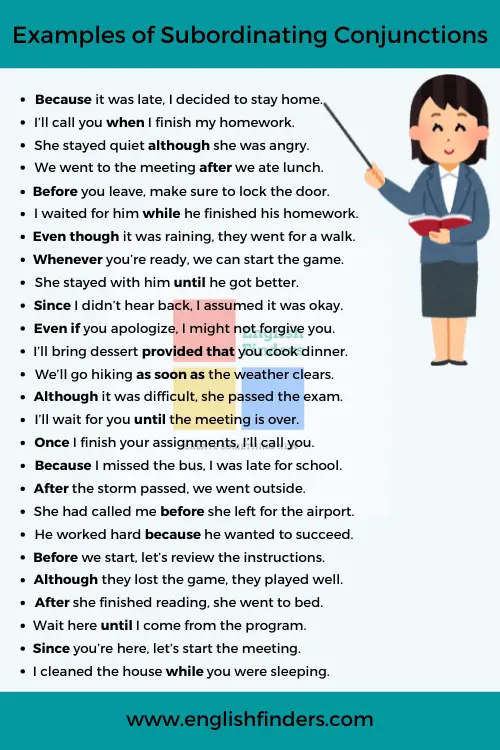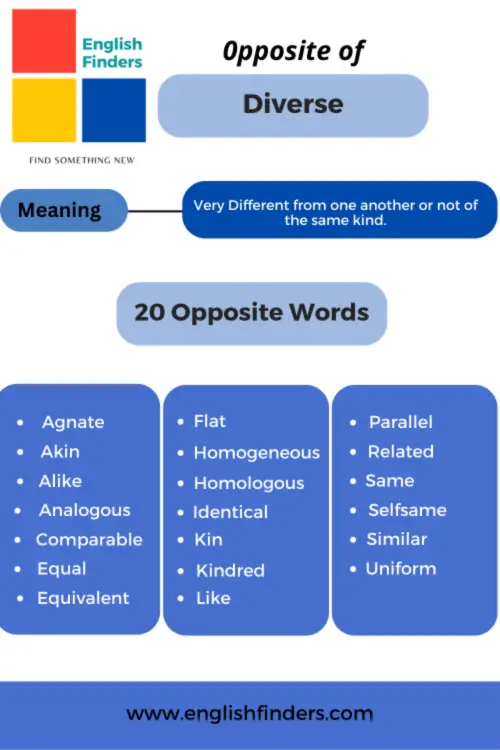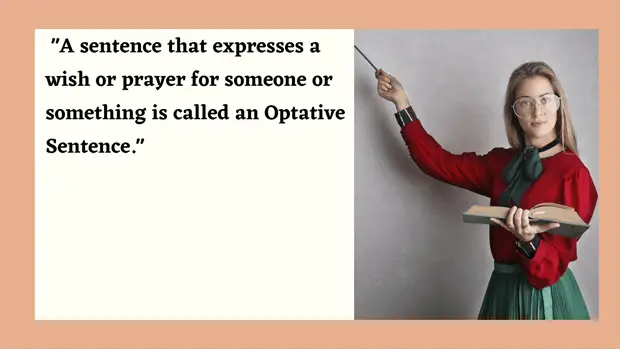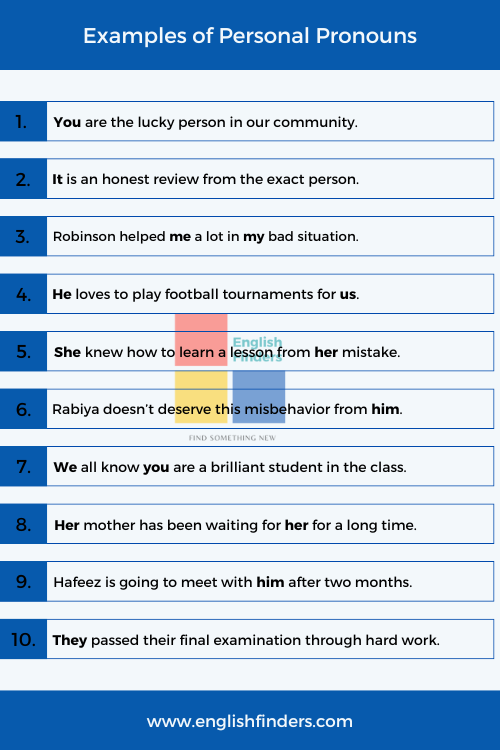Last updated on May 11th, 2025 at 09:19 pm
Subordinating conjunctions are super important for making your writing more interesting and clear. These little words help connect ideas, showing the relationship between two clauses in a sentence. If you’ve ever used words like because, although, or since, you’ve already used subordinating conjunctions. These are the most common examples of subordinating conjunctions.
In this lesson, we’ll explain what subordinating conjunctions are and how to use them in sentences. We will also provide you with 100 examples of subordinating conjunctions that will help you understand how to use them correctly. First, let us know what the subordinating conjunctions are.
What are Subordinating Conjunctions?
Quick Navigation
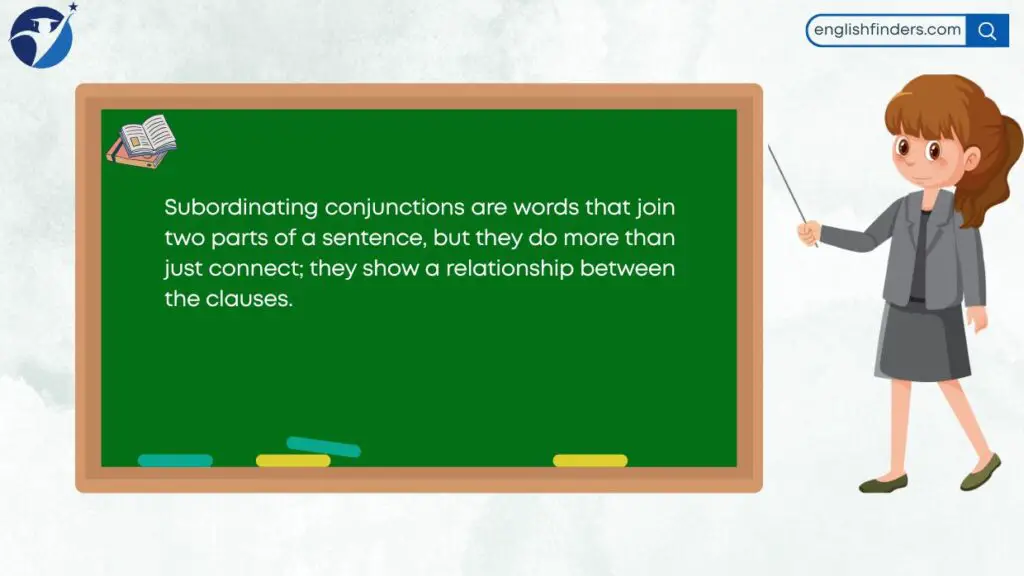
Subordinating conjunctions are words that join two parts of a sentence, but they do more than just connect—they show a relationship between the clauses. Usually, one part of the sentence depends on the other to make sense. This is why we call them “subordinating” because one clause is less important (or subordinate) to the other.
For example, in the sentence “I stayed home because it was raining,” the word “because” is the subordinating conjunction. It links the reason (it was raining) to the main idea (I stayed home). Without the subordinating conjunction, the sentence wouldn’t make much sense.
Subordinating conjunctions often answer questions like why, when, where, or how. Words like if, although, while, and since are all examples of subordinating conjunctions. They help you create more detailed and connected thoughts in your writing.
How to Use Subordinating Conjunctions in Sentences
Let’s walk you through how to use subordinating conjunctions in your sentences.
- Subordinating conjunction at the start of a sentence:
You can begin a sentence with a subordinating conjunction. When you do this, you’ll need to add a comma after the first part of the sentence (the dependent clause). For example:- Because the weather was cold, we stayed inside.
Here, “Because” is the subordinating conjunction, and we’ve added a comma after the first clause.
- Because the weather was cold, we stayed inside.
- Subordinating conjunction in the middle of a sentence:
You can also place the subordinating conjunction between two clauses, and in this case, no comma is needed. For example:- We stayed inside because the weather was cold.
Notice that there’s no comma this time, and the meaning is still clear.
- We stayed inside because the weather was cold.
Subordinating conjunctions show a range of relationships, such as:
- Cause and effect:
- Since she finished her homework, she can go out.
- Contrast:
- Although it was cold, they went for a walk.
- Time:
- After we ate dinner, we watched a movie.
100 Examples of Subordinating Conjunctions
Now it’s time to show the 100 useful examples of subordinating conjunctions in sentences. We’ve bolded the subordinating conjunctions to make it easy for you to spot them:
- Because it was late, I decided to stay home.
- I’ll call you when I finish my homework.
- She stayed quiet although she was angry.
- If it rains, we will cancel the picnic.
- We went to the meeting after we ate lunch.
- Since he moved to a new city, we haven’t seen him.
- I won’t go out until my room is clean.
- Before you leave, make sure to lock the door.
- He didn’t go to the party because he wasn’t feeling well.
- Though it was hard, she didn’t give up.
- I’ll help you whenever you need me.
- They will arrive as soon as they can.
- Unless you hurry, you’ll miss the bus.
- I waited for him while he finished his homework.
- Even though it was raining, they went for a walk.
- Whenever you’re ready, we can start the game.
- I’ll visit you as long as you’re home.
- If I had known, I would have told you earlier.
- She stayed with him until he got better.
- Since I didn’t hear back, I assumed it was okay.
- Because I love chocolate, I couldn’t resist the cake.
- Even if you apologize, I might not forgive you.
- I’ll bring dessert provided that you cook dinner.
- He wasn’t happy though he got the job.
- We’ll go hiking as soon as the weather clears.
- Whenever I see her, I feel happy.
- Although it was difficult, she passed the exam.
- I’ll wait for you until the meeting is over.
- Once I finish your assignments, I’ll call you.
- If you don’t understand, just ask for help.
- Because I missed the bus, I was late for school.
- After the storm passed, we went outside.
- She had called me before she left for the airport.
- Though he was tired, he kept working.
- When you arrive, give me a call.
- As long as we’re together, I’m happy.
- Since it’s your birthday, let’s celebrate!
- He worked hard because he wanted to succeed.
- Even though she was busy, she made time for me.
- If it’s cold tomorrow, I’ll wear a jacket.
- While I was cooking, the phone rang.
- Before we start, let’s review the instructions.
- Since it’s raining, let’s stay inside.
- Although they lost the game, they played well.
- I’ll call you once I get home.
- Unless you ask, you won’t get help.
- Because he studied, he passed the test.
- Though it’s late, I’m not tired.
- If we don’t leave now, we’ll be late.
- After she finished reading, she went to bed.
- Wait here until I come from the program.
- Even if it’s hard, I’ll keep trying.
- Since you’re here, let’s start the meeting.
- While she was away, he took care of everything.
- Because he was sick, he stayed home.
- Though it was a challenge, they succeeded.
- As soon as the sun sets, we’ll light the fire.
- When the movie ends, we’ll go for dinner.
- Since we’re on vacation, we’ll explore new adventures.
- If you finish your duty on time, I’ll surprise you.
- After the concert, we went out for ice cream.
- Whenever you need help, don’t hesitate to ask.
- Though she was afraid, she faced her fears.
- Take note of the design in case you forget.
- Unless you try, you’ll never know.
- When it gets dark, we’ll head home.
- Since the store is closed, we’ll go tomorrow.
- Although he’s young, he’s very talented.
- Before the show starts, let’s find our seats.
- If it’s too spicy, I’ll order something else.
- As long as you’re happy, I’m happy.
- Though I’m tired, I’ll help you with your project.
- Because it’s a special day, we’re having a party.
- After I finish this book, I’ll start another.
- When you see him, tell him I said hello.
- Since you asked nicely, I’ll help you.
- If he arrived here on time, we would start the program.
- Though it’s risky, I’m willing to try.
- Before I forget, here’s your notebook.
- She learned programming so that she could make a website.
- Even though it was hard, I enjoyed the challenge.
- Because you’re my friend, I want to support you.
- As soon as we land, I’ll text you.
- Though they were late, they still made it.
- If I win, I’ll share the prize with you.
- Since we’re all here, we can start playing the game.
- Because he’s allergic, he can’t eat peanuts.
- I cleaned the house while you were sleeping.
- I recognized the bird when I saw it for the second time.
- When I woke up, the sun was shining.
- If we leave the place, we’ll call you on time.
- Since it’s your first time, I’ll show you the way.
- Even if it’s expensive, I want to buy it.
- I saw a beautiful sunset while I was driving.
- After we arrived, we unpacked our bags.
- Although it was snowing, we went for a walk.
- Since it’s the weekend, I’m going to relax.
- If you have any questions, feel free to ask.
- Because he’s a good friend, I trust him.
- We finished the project though it wasn’t easy.
Wrap Up
Subordinating conjunctions are powerful terms that help you create more meaningful and complex sentences. They connect your ideas smoothly and show the relationship between different thoughts, whether it’s cause and effect, contrast, or time.
In this lesson, we’ve covered what subordinating conjunctions are, how to use them in sentences, and given you 100 examples to help you practice. Remember, the more you use them, the more natural they’ll feel in your writing.
Frequently Asked Questions
What is a subordinating conjunction?
A subordinating conjunction is a word or phrase that connects two clauses in a sentence, showing the relationship between them. One clause is dependent on the other to complete its meaning. Common examples include because, although, since, and if.
How do subordinating conjunctions differ from coordinating conjunctions?
Subordinating conjunctions connect a dependent clause to an independent clause, making one part of the sentence dependent on the other. In contrast, coordinating conjunctions like and, but, and or join two independent clauses that are equally important.
Can a subordinating conjunction start a sentence?
Yes! A subordinating conjunction can start a sentence, and when it does, you should use a comma to separate the dependent clause from the independent clause. For example: If you start working on your project, I’ll join you.

Azizul Hakim is the founder & CEO of englishfinders.com. He is a passionate writer, English instructor, and content creator. He has completed his graduation and post-graduation in English language and literature.

